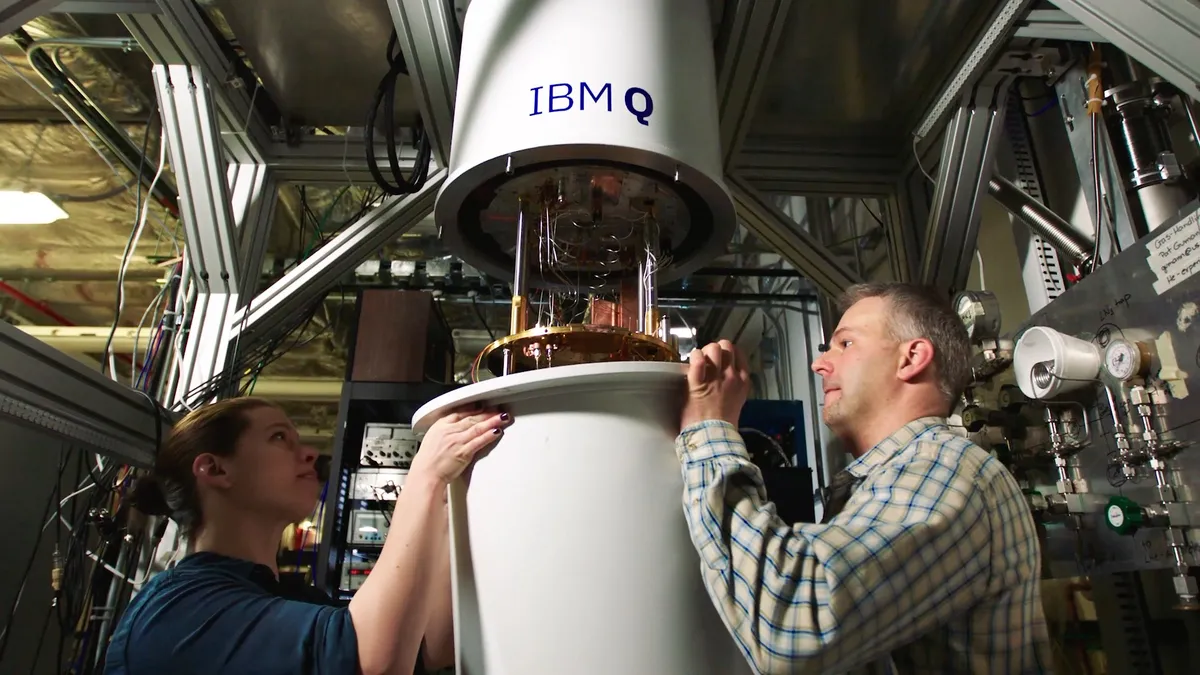Dive Brief:
- IBM unveiled the IBM Q System One, an "integrated universal approximate quantum computing system" for commercial and scientific purposes, at the Consumer Electronics Show. This is another step in the commercializing the nascent, yet disruptive technology and moving it past the boundaries of a lab.
- Commercial viability is not an indicator that the company has a pure quantum computer, however. The new system features a 20-qubit processor with improved design for stability and reliability, according to IBM. Capabilities surpassing supercomputers will still demand qubit ranges closer to 100, CEO Ginni Rometty said at the Gartner Symposium/ITxpo in Orlando, Fla., last October.
- The company also signaled plans to open a quantum computing center in New York later this year, which will house a cloud-based quantum computing system for IBM Q Network clients.
Dive Insight:
IBM has banked on quantum as one of its core future technologies, first opening up client access through the cloud last year. Rometty predicted within the next five years, businesses will start seeing the impact of quantum computing technologies.
While quantum computing across the board is still in the early and often experimental stages, IBM has emerged as a clear front runner bringing some of the earliest capabilities to customers. The company's 20 qubit processor, available since May of 2016, has logged 6.7 million experiments. And the its 50 qubit process is nearing readiness for cloud and commercial use, according to Rometty.
The high costs of developing and building a quantum computer restrict tangible progress in the field to just a handful of players. IBM, along with other big tech firms such as Google, Microsoft and Intel, is working toward a universal, scalable quantum computer, which will be capable of solving a lot of problems without needing specialization — moving technologists past the limits of current classical and supercomputers.
Stabilizing qubits continues to present one of the greatest challenges for these companies. Microsoft is taking a bet on topological qubits, while Intel is working on two variations: superconducting and spin qubits.
Other providers, such as D-Wave International, are offering specialized quantum computers that harness quantum annealing for optimization problems, from traffic optimization in China to election modeling.
With the prospect of being the first to reach quantum supremacy, many organizations are focusing on internal efforts as opposed to industrywide collaboration, Jim Clarke, director of quantum hardware at Intel, told CIO Dive in an August interview. Greater collaboration between industry and academia could foster the progression of the technology.
It would be a missed opportunity to refrain from tackling common challenges and higher architectures together, he said.













